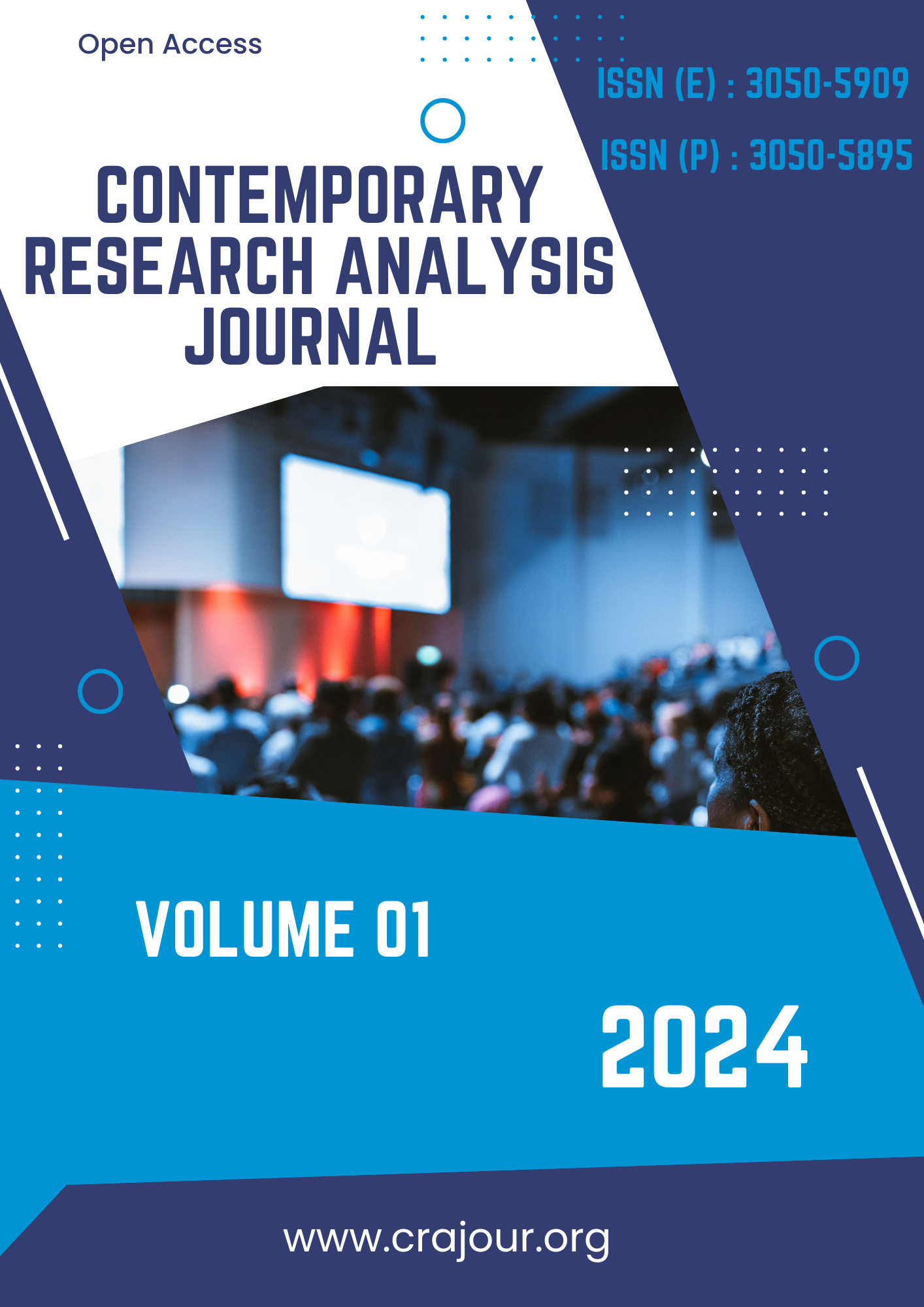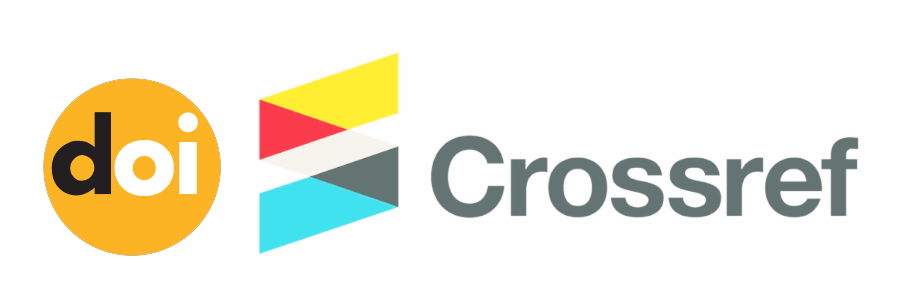Environmental Education and Pro-Environmental Behavior Among Um Peñaplata College Students
DOI:
https://doi.org/10.55677/CRAJ/03-2024-Vol01I4Keywords:
environmental education, pro-environmental behavior, and students, descriptive-correlational design, PhilippinesAbstract
This study aimed to determine the level of environmental education, the level of pro-environmental behavior, and to examine the relationship between environmental education and pro-environmental behavior among UM Peñaplata College students. The research approach was quantitative, a descriptive-correlational design was employed. Thus, the researchers used mean, Pearson Product Moment Correlational, and regression for data analysis and interpretation. The results revealed that environmental education and students’ pro-environmental behavior is high. Further, there is a moderate correlation between environmental education and pro-environmental behavior among students. It underscored that students who applied an environmental value tends to be aware of how their behaviour affects the environment. The more the school integrates environmental education, the more it fosters pro-environmental behavior. Therefore, incorporating environmental education into schools enhances students’ sustainable actions towards the environment.
References
Ahmat Zainuri, Nuryazmin, Norshariani Abd-Rahman, Lilia Halim, Mee Yeang Chan, and Nisa Nadirah Mohd Bazari. 2022. Measuring pro-environmental behavior triggered by environmental values. International Journal of Environmental Research and Public Health 19: 16013.
Ajzen, Icek. 2005. Attitudes, Personality and Behavior. Mapping Social Psychology. New York: Open University Press.
Akintunde, Elijah A. (2017). Theories and Concepts for Human Behavior in Environmental Preservation. Journal of Environmental Science and Public Health, 01(02), 120–133.
Araoz, E. G. E., Ramos, N. a. G., Valverde, Y. P., Herrera, R. Q., &Bazán, J. M. (2023). Examining the Relationship between Environmental Education and Pro-Environmental Behavior in Regular Basic Education Students: A Cross- Sectional Study. Social Sciences, 12(5), 307.
Boudreau G. Behavioural change in environmental education. (2010)
Cueto, Ana. 2017. La EducaciónAmbiental y el DesarrolloSostenibleenlosEstudiantes del 3er año de EducaciónSecundariaen las InstitucionesEducativas del Distrito de Santa Anita, 2013. Tesis de posgrado. Universidad Nacional de Educación Enrique Guzmán y Valle, Lima, Perú. Available online:
DíazGrijalva, G. R., Camarena Gómez, B. O., MirónJuárez, C. A., & Ochoa Ávila, E. (2019). Prácticadocenteeneducaciónambiental y habilidadesproambientalesen el estudiantado de quintogrado de primaria. ActualidadesInvestigativasenEducación, 19(3), 368-387.
Feldman, A., & Nation, M. (2022). Environmental Education Curriculum. In Crossref. Routledge.
Hines, J. M., Hungerford, H. R., & Tomera, A. N. (1987). Analysis and synthesis of research on responsible environmental behavior: A meta-analysis. The Journal of environmental education, 18(2), 1-8.
Hoffmann, R., &Muttarak, R. (2020). Greening through schooling: understanding the link between education and pro-environmental behavior in the Philippines. Environmental Research Letters, 15(1), 014009.
Jin T, Li M. Does education increase pro-environmental willingness to pay? evidence from Chinese household survey. J Clean Prod. (2020) 275:122713. doi: 10.1016/j.jclepro.2020.122713
Kaiser, F. G. (2006). A moral extension of the theory of planned behavior: Norms and anticipated feelings of regret in conservationism. Personality and Individual Differences, 41(1), 71-81.
Kollmuss, A., &Agyeman, J. (2002). Mind the gap: why do people act environmentally and what are the barriers to pro-environmental behavior?. Environmental education research, 8(3), 239-260.
Mamani, Helen, Edwin Estrada, Néstor Gallegos, and Karl Huaypar. 2020. Actitudes hacia la conservación ambiental en adolescentes de educación secundaria en Madre de Dios, Perú. Ciencia Amazónica (Iquitos) 8: 99–110.
McDougall, A. (2020).The Tomorrow Project - Closing the gap in environmental education. (n.d.). TUGI.
Mkumbachi, Lausi, R., Astina, I. K., & Handoyo, B. (2020). Environmental awareness and pro-environmental behavior: A case of univer-sity students in Malang City. Jurnal Pendidikan Geografi, 25(2), 118-125.
Mónus, F. (2022). Environmental education policy of schools and socioeconomic background affect environmental attitudes and pro-environmental behavior of secondary school students. Environmental Education Research, 28(2), 169-196.
Olivera, Edith, Víctor Pulido, and Daniel Yupanqui. 2021. Conducta y actitud ambiental responsable en estudiantes universitarios en Lima, Perú. Apuntes Universitarios 11: 123–39.
Santacruz, Atanacia. 2018. La estrategia del debate en el fortalecimiento de la conciencia ambiental. Investigación Valdizana 12: 177–83.
Severino-González, P., Duque-Orozco, Y. V., &Villar-Olaeta, J. (2021). Percepción de líderessindicalessobre la responsabilidad social empresarial: Desafíos para sugestiónestratégica. Interciencia, 46(3), 110-117.
Siedlecki, S. L. (2020). Understanding descriptive research designs and methods. Clinical Nurse Specialist, 34(1), 8-12.
Stern, Paul. 2000. New environmental theories: Toward a coherent theory of environmentally significant behavior. Journal of Social Issues 56: 407–24.
Takshe, A. A., Hennawi, M., Jebril, S., Alawi, S., AlZaidan, S., & Okasha, A. (2023). Investigating determinants of pro-environmental behaviors amongst UAE university students through Q-methodology. Discover Sustainability, 4(1).
Teixeira, A., Gabriel, R., Martinho, J., Santos, M., Faria, A., Oliveira, I., & Moreira, H. (2023). Pro-environmental behaviors: relationship with nature visits, connectedness to nature and physical activity. American Journal of Health Promotion, 37(1), 12-29.
Tian, H., & Liu, X. (2022). Pro-environmental behavior research: Theoretical progress and future directions. International Journal of Environmental Research and Public Health, 19(11), 6721.
Thakadu, O. T., Irani, T. A., &Telg, R. (2013). Predictors of knowledge-sharing behaviors among community-based natural resources organizations in the Okavango Delta, Botswana. Science Communication, 35(5), 572-602.
Tofighi, M., & Jackson, T. W. (2020). Environmental knowledge gap: The discrepancy between perceptual and actual impact of pro‐environmental behaviors among university students. Journal of Public Affairs.
Torkar, G., &Bogner, F. X. (2019). Environmental values and environmental concern. Environmental Education Research, 25(10), 1570-1581.
Trewhella, W. J., Rodriguez‐Clark, K. M., Corp, N., Entwistle, A., Garrett, S. R. T., Granek, E., ... & Sewall, B. J. (2005). Environmental education as a component of multidisciplinary conservation programs: lessons from conservation initiatives for critically endangered fruit bats in the western Indian Ocean. Conservation Biology, 19(1), 75-85.
Wang, Q., Niu, G., Gan, X., & Cai, Q. (2022). Green returns to education: Does education affect pro-environmental attitudes and behaviors in China?. PloS One, 17(2), e0263383.
Wen LM, Rissel C, Baur LA, Lee E, Simpson JM. Who is NOT likely to access the Internet for health information? Findings from first-time mothers in southwest Sydney, Australia. International Journal of Medical Informatics. 2011;80(6):406–11. doi: 10.1016/j.ijmedinf.2011.03.001
What is Environmental Education? | US EPA. (2023, July 10). US EPA.
White, K., Habib, R., & Hardisty, D. J. (2019). How to SHIFT consumer behaviors to be more sustainable: A literature review and guiding framework. Journal of marketing, 83(3), 22-49.
Wu Y, Wan J and Yu W (2023) Impact of environmental education on environmental quality under the background of low-carbon economy. Front. Public Health 11:1128791. doi: 10.3389/fpubh.2023.1128791
Wyss, A. M., Knoch, D., & Berger, S. (2022). When and how pro-environmental attitudes turn into behavior: The role of costs, benefits, and self-control. Journal of Environmental Psychology, 79, 101748.
Zainuri, N. A., Rahman, N. A., Halim, L., Chan, M. Y., &Bazari, N. N. M. (2022). Measuring Pro-Environmental behavior triggered by environmental values. International Journal of Environmental Research and Public Health, 19(23), 16013.
Downloads
Published
Issue
Section
License
Copyright (c) 2024 Contemporary Research Analysis Journal

This work is licensed under a Creative Commons Attribution 4.0 International License.



